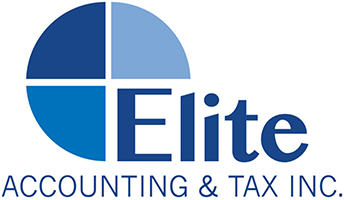All businesses must file and pay taxes, but knowing how to properly report financial data can help alleviate the burden. Using business tax write-offs allows you to deduct expenditures related while running your company from your income, lowering your tax liability. With careful tax planning, you can properly calculate and report business tax write-offs.
In this blog post, we’ll discuss what business tax write-offs are and why they are crucial in tax planning and tax preparation.
What is the Meaning of Tax Write-Off? What are Business Write-Offs?
A tax write-off is any business deduction permitted by the IRS in order to reduce taxable income. The IRS uses the terms “ordinary” and “necessary” to qualify for a write-off; that is, expenditures must be considered to be necessary and relevant to your type of business. Tax write-offs, in general, fall into specific reporting classifications such as business trips, advertising, or home office expenses.
Tax Write-Off vs. Tax Deduction
When working with a tax professional or looking for tax planning tips, you may come across the terms tax deduction or tax write-off. These terms may be used interchangeably, and they essentially mean the same as both refer to a sum that reduces your taxable income.
Tax Write-Off vs. Tax Credit
A tax credit, unlike a tax deduction, is not the same as a tax write-off. While tax deductions reduce business income, tax credits reduce the total tax liability. For instance, if a company earns $10,000 and writes off $1,000 as the cost of a business insurance policy, the company’s net taxable income is $9,000.
To calculate the amount of taxes owed, a business tax rate will be applied to the $9,000 figure. With a 10% tax rate, the tax liability would be $900.
Companies that use a business tax credit can reduce their tax liability even further. Tax credits are available for a number of purposes, including healthcare plans or small businesses funding a pension.
How Do Business Tax Write-Offs Work?
Expense tracking reports are used to calculate tax write-offs for your business. It is critical to keep track of all business-related expenses paid throughout the year. When preparing year-end tax returns, it may be beneficial to devise a system that groups expenses into categories that correspond to the IRS forms. This ensures that you do not overlook any potential write-offs.
Let Us Help You Take Advantage of Business Tax Write-Offs!
Tax write-offs for businesses can help you reduce your taxable income. Setting up a system for tracking deductible expenses throughout the year will help to streamline tax preparation at the end of the year. Elite Accounting & Tax provides efficient tax services including tax planning and guided tax preparation to ensure that you don’t miss out on important business deductions or available tax credits. Contact us to book a consultation now to get started!


